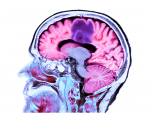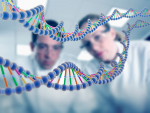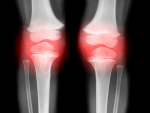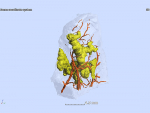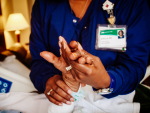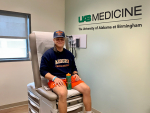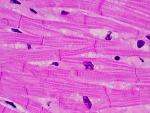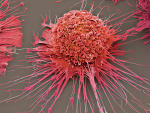Displaying items by tag: department of medicine
Watching the portion and carb content of food and drinks can help prevent blood sugar spikes this New Year’s Eve.
Tagged under
The spinoff company, IN8bio Inc., uses proprietary drug-resistant immunotherapy licensed in part from UAB. Glioblastoma is the most aggressive type of cancer originating in the brain.
Tagged under
Precision medicine approach may identify those at high genetic risk of hypertension, heart failure, stroke and heart attacks and use precision medicine to help prevent fatal cardiovascular diseases.
Tagged under
The first large multi-ancestry genetics study of osteoarthritis, or OA, has found 10 novel OA-associated genetic loci, and results showed some of the OA-associated regions are robustly found in every population ancestry studied.
Tagged under
- release
- school of medicine
- department of medicine
- department of surgery
- department of cell developmental and integrative biology
- division of pulmonary allergy and critical care medicine
- school of public health
- department of epidemiology
- department of genetics
- department of biostatistics
- public health research
Cardiac intelligence uses artificial intelligence to monitor patients for cardiac disease and progression.
Tagged under
Insights that are not possible with conventional two-dimensional platforms include characterization of obliterated airways in tuberculosis and hemorrhage from ruptured blood vessels in COVID-19 lungs, at near-microscopic levels.
Tagged under
New screening guidelines and improvements in diagnostics and treatment have improved outcomes in lung cancer.
Tagged under
UAB researchers have published an article demonstrating how the term “aggressive care,” used loosely by clinicians to describe care that can negatively impact quality of life for patients with serious illness, is often used to inappropriately label the preferences of African American patients.
Tagged under
The holiday season is a time when family members get together to share a meal; doctors recommend using this opportunity to learn more about one’s family history.
When Cameron Monistere was diagnosed with cancer right before his senior year of college and final season as an Auburn University cheerleader, he acted fast. With the help of UAB experts, Monistere is now cancer-free and using his story to raise awareness about men’s health.
Tagged under
Experimental neonatal chronic lung disease is marked by a redox imbalance that damages the lungs, and that damage can be ameliorated using a live biotherapeutic mixture of three Lactobacillus species.
Tagged under
Three UAB employees share their diabetes journey and provide healthy tips in honor of Diabetes Awareness Month.
Tagged under
The Alabama Department of Public Health shows widespread flu activity in all areas of the state. UAB’s Rachael Lee, M.D., urges the public to enact preventive measures to slow the spread of flu, and to ease the burden on health care systems.
Tagged under
A UAB study including more than 20,000 ventricular assist device recipients showed that patients diagnosed with familial dilated cardiomyopathy had better clinical outcomes compared with other DCM diagnoses.
Tagged under
- release
- office of the president
- office of the provost for student and faculty success
- uab strategic plan
- school of medicine
- oneal comprehensive cancer center
- department of medicine
- division of infectious diseases
- department of surgery
- uab medicine
- department of clinical and diagnostic sciences
- division of cardiovascular disease
- division of endocrinology diabetes and metabolism
- students
Two infectious diseases physicians break down what you need to know about flu, RSV and COVID as the colder months arrive and more people contract these viruses.
Tagged under
At their annual Innovation Awards, UAB’s Bill L. Harbert Institute for Innovation and Entrepreneurship celebrated innovators from all corners of campus for their accomplishments, inventions and ingenuity.
Tagged under
- release
- college of arts and sciences
- school of engineering
- school of medicine
- department of medicine
- uab medicine
- collat school of business
- barefield entrepreneurship program
- department of physics
- department of pediatrics
- department of dermatology
- division of pulmonary allergy and critical care medicine
- comprehensive diabetes center
- department of materials science and engineering
- department of computer science
- department of ophthalmology and visual sciences
- department of mechanical engineering
- department of microbiology
- division of gerontology geriatrics and palliative care
- harbert institute for innovation and entrepreneurship
Direct reprogramming is a potential therapy for heart attack patients. In vitro, TBX20 improved contractility and mitochondrial function of reprogrammed heart muscle cells.
Tagged under
Tagged under
This novel finding will help guide successful therapeutic design and strategies for acute kidney injury and chronic kidney disease.
Tagged under

